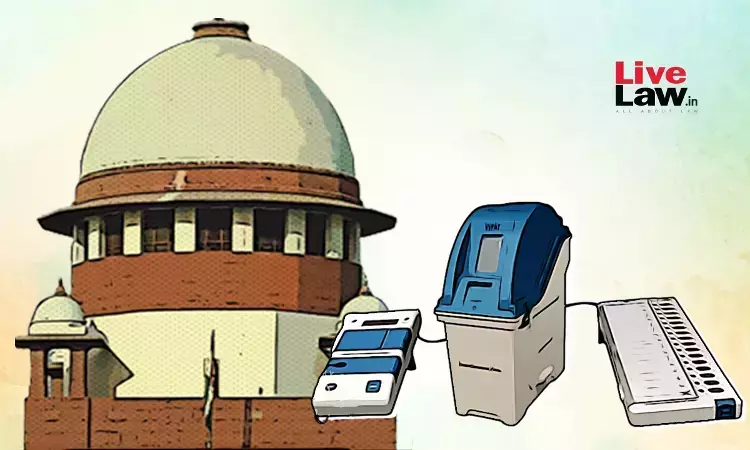Supreme Court Rejects Plea For 100% EVM-VVPAT Verification, Issues Directions To Seal Symbol Loading Unit
Debby Jain
26 April 2024 10:48 AM IST

Next Story
26 April 2024 10:48 AM IST
In a significant development, the Supreme Court on Friday (April 26) rejected the pleas seeking 100% cross-verification of Electronic Voting Machines (EVMs) data with Voter Verifiable Paper Audit Trail (VVPAT) records.The verdict was delivered by a bench of Justices Sanjiv Khanna and Dipankar Datta. Though the cases were reserved for orders on April 18, they were listed again on April 24 as...
